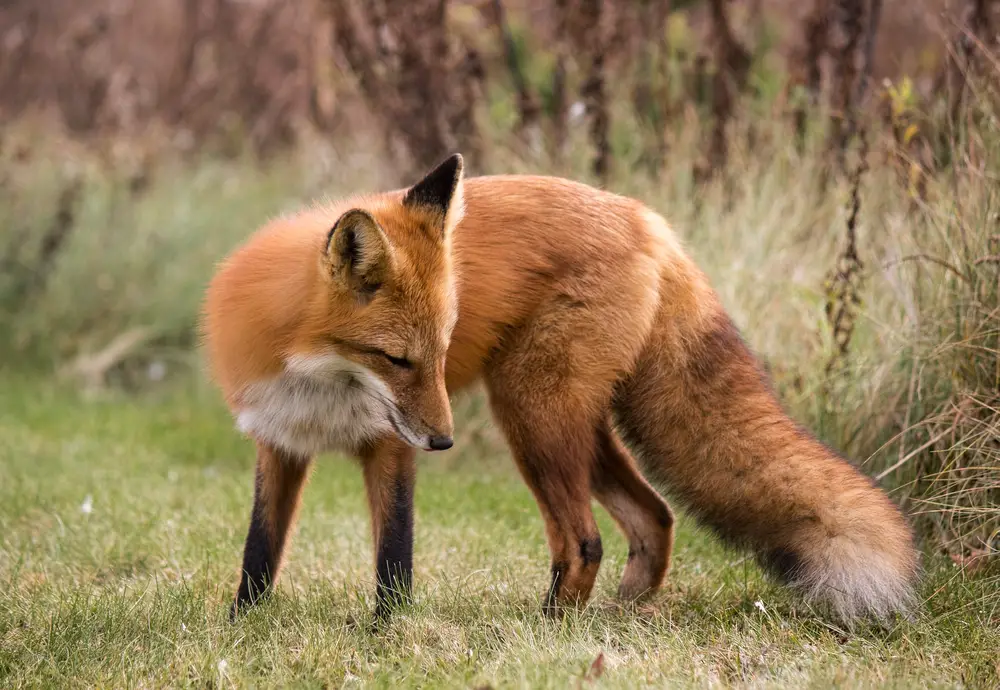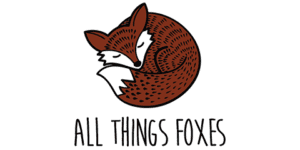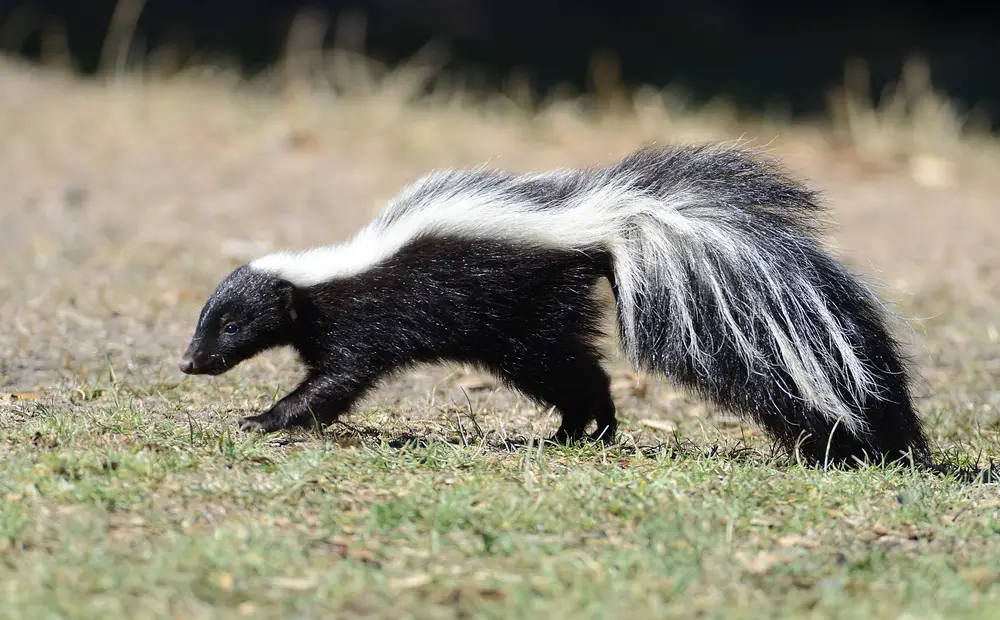You might think that skunks have the ultimate self-defense mechanism. When they feel threatened they spray a foul-smelling secretion from a duct that protrudes from their anus.
The scent of this has been likened to rotten eggs, sulfur, and even decaying flesh.
While this is definitely unappetizing, even skunks have their predators. But do foxes eat skunks? We’ll explore this topic in more depth below, along with a few other interesting facts about both foxes and skunks.
Do Foxes Eat Skunks?
Yes, foxes do eat skunks. However, foxes are incredibly clever animals and they will be far more likely to eat a skunk that has already died, rather than risk getting covered in that disgusting scent.
They may not avoid killing a live skunk entirely, though. In times of extreme hunger, desperation, and low food sources, a fox may have no other choice than to prey on a skunk. Even if there is a risk that they might get covered in a foul-smelling liquid.
Another reason why foxes might choose to prey on skunks during times of desperation is that both animals are mostly nocturnal. With this in mind, skunks are much more available to foxes than other food sources which they’d have to risk coming out into the daylight to hunt.
For the most part, however, if you’ve ever witnessed a fox feasting on skunk, it’s more than likely that it has either been killed by something else such as a larger predator, a human, or being hit by a vehicle. It may have also died of natural causes.

Foxes are opportunistic scavengers and, to that end, they are more than happy feeding on carrion. They’ll also use this instinct to get nutrients from larger animals that they wouldn’t be able to kill by themselves, such as deer.
How Would A Fox Kill A Skunk?
As we’ve explained above, a fox will likely only kill a skunk if it is desperate enough to do so. As a juvenile, it will soon learn that skunks are animals that are best left alone, especially if there is easier, better-smelling food around!
But, in those instances when preying on a skunk is the only option, a fox will utilize some of the deadly physical characteristics that it’s evolved over time to help it.
The first of these is its sense of smell. While a skunk will only deploy its self-defense tactic when it feels threatened, just like all animals, it will also have a unique odor.
A fox’s nose is covered in thousands of nerve endings. These are connected directly to the part of their brain that is responsible for identifying scents. This allows them to track the skunk and guides them to their exact location.
Foxes also have the ability to see in the dark. Since both creatures are nocturnal, a fox can use its powerful night vision to lock onto the skunk before it makes its attack.
Finally, foxes also have powerful jaws and strong muscles. So, once they’ve got hold of a skunk, they are able to deliver a killer bite before dragging the skunk back to their den where they will either eat it or store it for later.
What Other Predators Eat Skunks?
Foxes will usually only eat a skunk if it’s already dead. But this does pose the question of what killed the skunk in the first place?
Natural causes such as old age and disease may be the answer, but there are several other predators that could have led to the skunk’s demise.
Cougars, coyotes, and even domestic dogs are all capable of killing a skunk. Likewise, they also have some aerial predators including the Great-Horned Owl and the Red-Tailed Hawk. They may even have been bitten by a poisonous snake and traveled for miles before the venom finally killed it.
However the skunk dies, one thing is for certain – the fox that found it has got itself an easy, nutritious meal!
Skunk Self-Defense
Skunks are feistier than you might think, and they have certain characteristics aside from their famously noxious spray that would make a fox think twice before attacking one.
Their first line of defense is their markings. Their coats are patterned with black and white stripes which point straight towards their back-end.
This draws the eye of the fox and any other would-be predator straight to the most dangerous part of them, giving them the opportunity to leave them alone.
Skunks also defend themselves by performing a warning dance. This includes stomping on the ground, slapping their tail, and standing on their hind legs to give the predator a display of what they’ve got in store should they proceed any further!
Conclusion
As is the case with most of a fox’s diet, they will usually only eat a skunk that they have scavenged after something else killed it.
They may need to kill one during times of desperation but, for the most part, they’ll leave skunks well alone and only eat the ones they find already dead.

